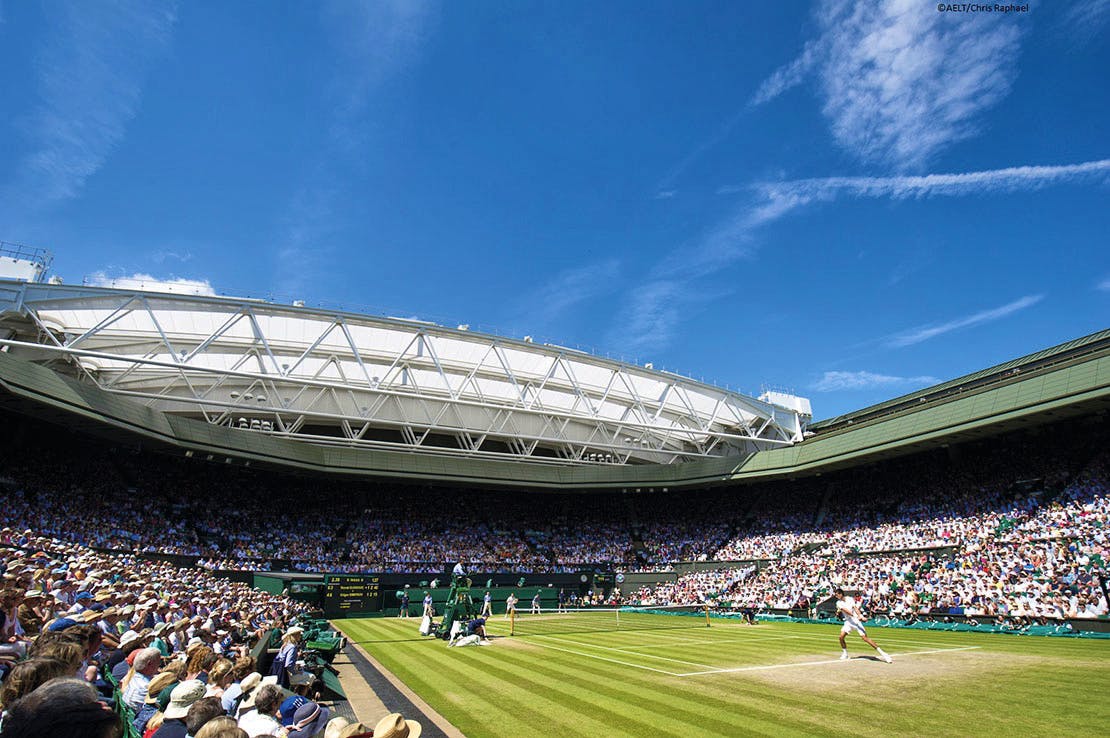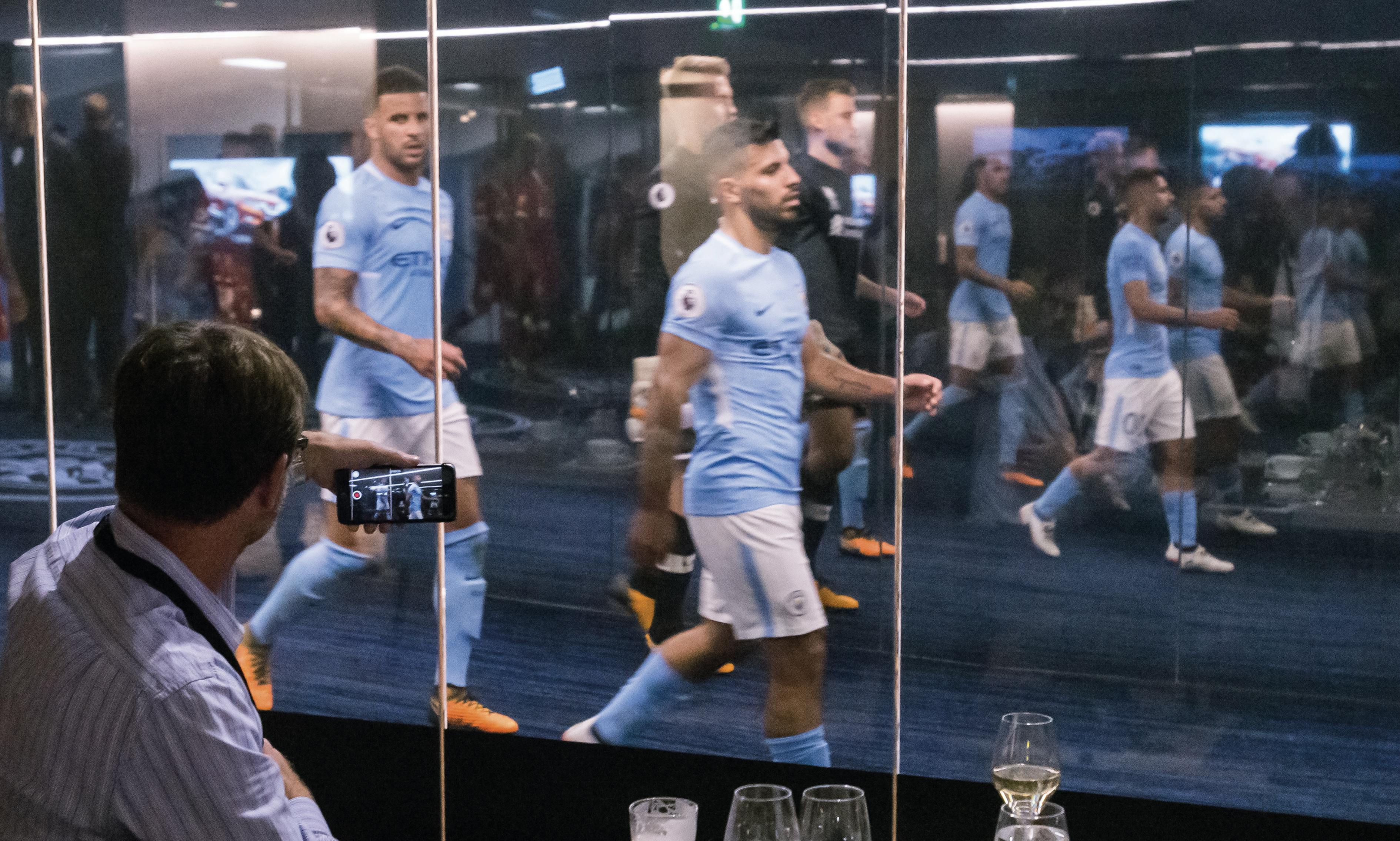This article was produced in association with Legends
Television’s seismic impact on the experience and economics of sport has led some observers to suggest a role reversal in which, ultimately, fans will be paid to attend the stadium simply to add atmosphere to the TV product with its massive high-value audience.
But rather than surrender in the face of competition from TV and other forms of entertainment, clubs and stadium operators continue to develop and redefine the live sport experience to meet the changing demands and expectations of today’s audience and maintain the primacy of game-day as an event best enjoyed live.
Trend #1: Demand for enhanced experiences at fan-friendly price points
The profile of modern fans is more varied than that of their predecessors, and their stadium expectations reflect their day-to-day consumer experience of choice and service. As they would on the high street, on an aeroplane or at the cinema, they are demanding the ability to enhance their game day experience without migrating to full, traditional hospitality packages.
This is taking the form of premium General Admission offers which are generally much like fan bars with access to great seats. These club themed areas feature lots of TV screens, seating and premium quality food and drink, occasionally with live music. As a result, they not only deliver on the promise of an enhanced match day experience but generate additional revenue by encouraging fans to arrive earlier and extend their match day experience
At Tottenham Hotspur’s new stadium, Legends undertook wide-ranging fan surveys and identified a sub-section of season ticket holders who wanted a haven at half time to enjoy a pint in 15 minutes without the usual GA crush.
At Twickenham, as the expectations of debenture holders increase, a significant segment wanted an enhanced experience in the stadium. Legends helped identify what was driving this demand and this insight led to the creation of dedicated spaces, designed to meet the unique wants of this user group, as part of the East Stand redevelopment that opens this autumn.
A deep understanding of local fan culture and demand are key insights in good decision making. Richard led the project to provide the board of FC Barcelona the information they needed to make fact based decisions on the future of the iconic Camp Nou.
At FC Barcelona, a member with a season ticket would never dream of buying hospitality – they are the owners and heart of the team – but Legend’s market fieldwork identified a segment that wanted a more premium in-stadium experience.
Legends collaborated with the club to develop a response to this demand in the club’s plan for their redeveloped Camp Nou.
Some clubs are taking the premium GA experience one step further by turning it into an entry level hospitality package and attracting sponsorship. For example at Liverpool FC, where Legends oversee all project development work, Carlsberg have sponsored a large premium GA level at the Anfield stadium, holding 2,000 fans who rub shoulders with hospitality guests on their way into the stadium and at their seats on the terraces, but at a much more affordable price.
Food is included in the ticket price, making Liverpool’s premium GA offer a step up from that of other clubs. The food is from street carts on the concourse, giving fans a wide choice at every game.
Trend #2: Demand for a broader range of hospitality options
Game day entertaining has changed beyond recognition in the past decade, driven by evolving taste and the commercial reality that hospitality buyers are not all corporate.
Individuals and groups of friends are increasingly looking to game day hospitality as a way of celebrating special occasions or simply having a good day out and this, together with changing tastes among corporate buyers, means the one-size fits all approach which typified the stadium hospitality sector for decades is simply no longer fit for purpose.
It’s a fact: formal is out, casual is in. This can mean more quality food options, varied spaces on match days, in-lounge entertainment and special experiences – all of which can be enjoyed without needing to wear a suit and tie.
Today’s demand means that hospitality offers must be infinitely more flexible than before. Fans don’t want to be responsible for organising large group outings to gain access to hospitality, driving the need for smaller groups for dining as well as bar perching.
At Wimbledon (pictured), Legends carried out a comprehensive and wide-ranging research and planning process on behalf of the AELTC to understand their customers. This was critical to the development of the future hospitality offering, ensuring that there is the right mixture of hospitality packages to reach the newly emerging segments of attendees.

At Turkish football club Galatasaray, Legends’ research identified that it was important that box holders were able to access the premium lounges, to meet and mingle in informal environments, rather than be constrained to their box.
Companies’ demand for boxes is also changing. Instead of large boxes or suites – once considered the ultimate corporate status symbol – the requirement is for a more personal environment and Legends have worked to create more flexible products. At Atlético Madrid and Tottenham Hotspur, Legends created Loge Boxes, which will also be a feature in AS Roma’s new stadium.
Legends’ research revealed that local and regional businesses were seeking private or semi-private space, and expressed the challenge of filling 12-24 seats for 20+ matches a season. However, they were intrigued by the idea of more flexible concepts.
Trend #3. Demand for truly unique experiences
Television’s ability to take viewers beyond the playing field and closer to the players before and after the game has helped drive demand among stadium spectators for a similar, up-close and personal experience.
Legends worked with Manchester City Football Club who were responsible for the concept and development of The Tunnel Club, the first of its kind in the Premier League, which has revolutionised sports hospitality to provide an immersive experience for supporters.
The Tunnel Club (pictured) has proved very successful at Manchester City and will debut at Tottenham’s new stadium next season. Legends is now working on similar and new innovative products at stadia throughout Europe.
These lounges offer a view of the teams as they move through to the pitch from their changing rooms via one-way glass, bringing fans as close to the players as possible.
The challenge brought by this explosion of new products and fresh offerings is delivering quality of experience across the whole range without creating confusion with the ultimate consumer. That means introducing exciting innovations while ensuring a coherent product hierarchy and overall pricing structure.

To achieve this, Legends has developed a proprietary research platform which utilises the experience from more than 1,800 projects across the globe, to create a model to develop the right mix of products to match specific market demand.
This, coupled with a 360-degree service solution approach and understanding of the complexities of facility design and operation, provides owners with the knowledge needed to integrate appropriate experience offers into the design and, crucially to provide the return on investment. It is important to note that the return is not always limited to financial upside but can be measured in terms of brand enhancement and customer engagement and satisfaction.
More choice and exclusivity also mean a requirement for more space. Legends’ experience and creative thinking has allowed them to re-imagine the possibilities for new hospitality spaces within existing buildings or designs, that will enhance the fan experience and maximise revenue.
Also, getting hospitality areas with close proximity to the best seats in the stadium becomes more challenging as the offers get more diverse, which requires careful planning from the outset to make sure that the customer journey/experience is not compromised at any point.
Trend #4: Clubs seeking to generate additional pre-game spend
Match day has traditionally been a Saturday with fans going to local bars and restaurants ahead of the game and arriving at the stadium just a few minutes before the action starts.
But the demographic of fans is also ageing over time, creating a need to bring younger fans to the stadium on match day.
Many clubs are now creating fan zones outside the stadium to create a special match day atmosphere and give fans a reason to come to the stadium early. These typically provide activities for younger fans, helping cement their loyalty for life, and create multiple revenue opportunities through catering and merchandise sales.
Fan zones contain large screens displaying pre-match build up, stages with live music, five a side and skills areas, face painting, meet the Club mascot experiences and of course food and beverage areas.
Bringing fans in earlier also eases queuing for security checks, reduces peak demand for public transport and spreads out traffic on the road network.
At Liverpool FC, fan zones have quickly become a key ingredient of the match day experience. They now have four fan zones around Anfield stadium, each with a different feel and target audience.
They open four hours before kick-off and at weekends are busy with fans, many of whom are occasional visitors to Anfield, or away fans, who come to the stadium for a full-day experience.
Liverpool’s fan zones have been so successful that Legends are managing the addition of a new fan bar this summer, providing a heated indoor space for over 600 fans on match days. All Liverpool’s fan zones can be accessed by anyone at the stadium, not just ticket-holders, broadening the appeal of these offers.
When Atlético Madrid moved into the Wanda Metropolitano stadium on the edge of the city last year, they needed to bring life to the stadium on match days and activate the large open areas around the stadium.
Legends, working with their partner Centerplate, identified the opportunity and now deliver the fan zones for Atlético which include themed food trucks with local restaurant supplied items to give an authentic and quality feel to the offering.
Legends works with teams across Europe on the next generation of experiential fan concepts that include sponsor activation, greater merchandising exposure and activation on non-match days.
For example, Legends global planning team have led projects to successfully re-imagine club museums and tours – it is now not just trophy cabinets and images from past successes, but cutting-edge technology, virtual reality and augmented reality that are bringing new fans and customers to the club and engaging them with deep emotional content that connects and brings them closer to the team.
Conclusions
In a fast-changing world, teams can no longer rigidly segment their fan base the way they have in the past. Fans are more sophisticated consumers with higher expectations of the products and services they buy and that applies across all experiences.
Consequently, there is growing demand from fans of all types for more customised, premium match day experiences. Z
Legends International is at the forefront of developing and delivering these new experiences. Their global planning division, which Richard and Martin lead in Europe, undertake research, development and project delivery to deliver on the largest stages for the most iconic brands. They work closely with their colleagues in global sales and hospitality to make sure that commercial, operational and culinary expertise is fully integrated in the work they do.
Legends delivers solutions based on data, analytics and insights from experienced project managers, operators and sales team members. We look to the future of each club and venue we work with, identifying what their fans of the future will look for, so that going to the game on match day remains a great experience for all.
For more information contact Richard Cheesman at rcheesman@legends.net, or visit the Legends website:
www.legends.net.